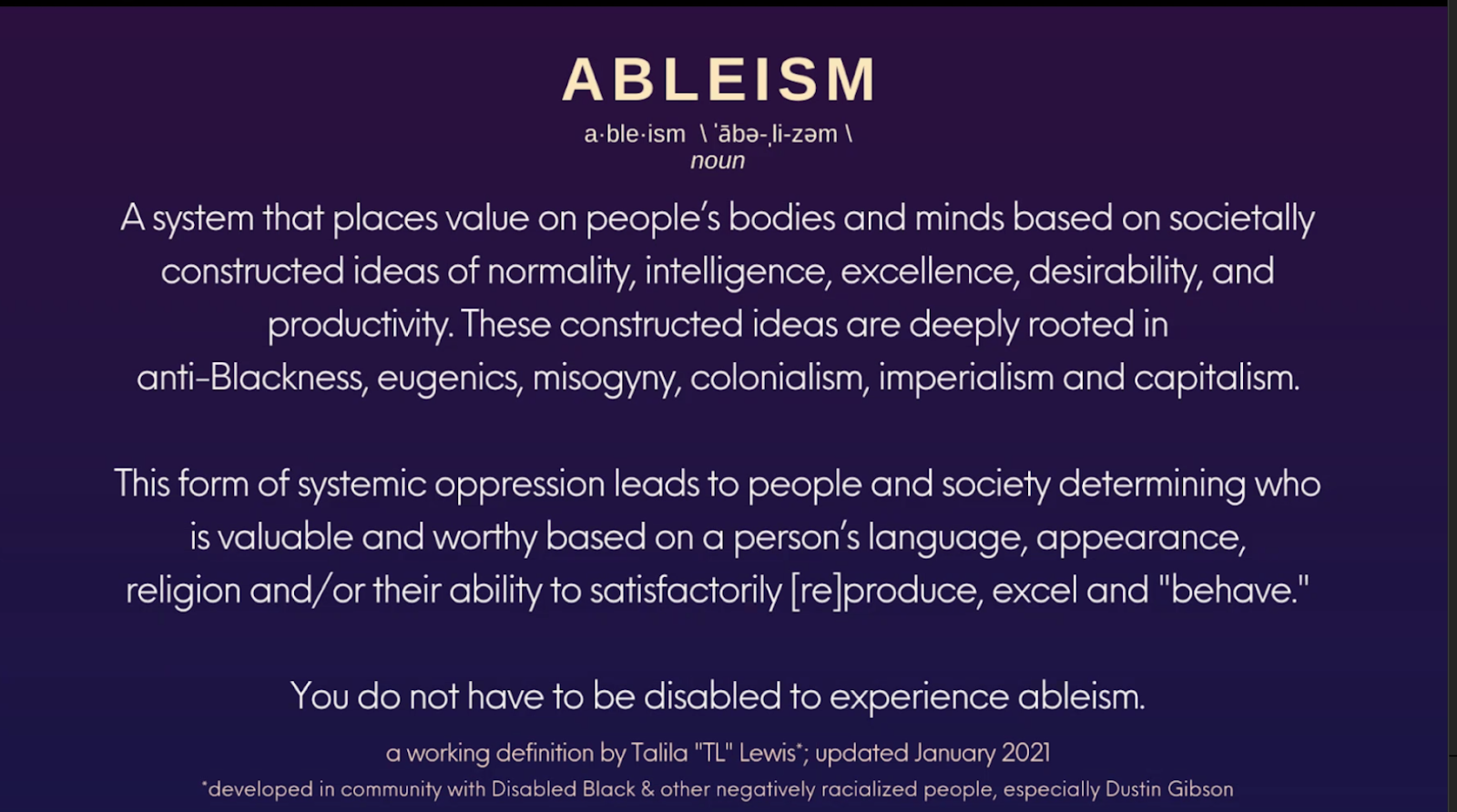Talila “TL” Lewis, an abolitionist community lawyer who does not use pronouns and instead is referred to as “TL,” shared personal experiences with ableism as both an undergraduate and graduate student before discussing how to redefine ableism at a Thursday panel held in continuation of the disabilities community discussion.
The panel, titled “A Conversation with TL Lewis: Understanding the Intersection of Disability, Ableism, Racism, & anti-Blackness” and co-sponsored by the Office of Accessible Education (OAE), the Division of Student Affairs and the Stanford Critical Law Society, was meant to introduce the audience to “disability truths” that they had possibly not been exposed to thus far, according to Lewis
“Disability is expansive and fluid,” Lewis said, calling it the first disability truth. “Because we live in a very white supremacist culture, every other marginalized identity is painted with the same broad and deeply problematic strokes.”
Lewis characterized as a “generational lie” a persisting notion of disability that paints a narrow image about those with disabilities and excludes members from marginalized communities from being able to identify as disabled.
“TL will help us think about what it means to be access-centered within and outside of the classroom in undergraduate and graduate professional student contexts,” said OAE disability adviser Roselyn Thomas, adding that Lewis’ work has already had a tremendous impact on OAE’s methodology.
Lewis said the second and third disability truths are that disabilities are part of life’s ordinary circumstances and that ableism — a term Lewis has more broadly reimagined as the dismissal of anyone deemed dispensable by society — fuels all systemic oppressions.
“There is nothing wrong with being disabled. There is something wrong with how disabled people are treated by society and there is particularly something wrong with how negatively racialized people are treated,” Lewis said.
Lewis said that within every community and community-advocacy group, there exist disabled members; the representation amongst those communities, however, varies disproportionately. Unlike in wealthy and white communities, Lewis said, “you will in fact find more disabilities within communities that are marginalized, that are oppressed, that have generational trauma.”
“That’s really, really important to name and center because people seem to think that Black, Brown, poor [and] incarcerated people can’t be disabled,” Lewis said.
Lewis then transitioned to applying the disability truths to helping attendees understand that members of the disability community are not the only ones who experience ableism.
“[Ableism] is the providing of resources to those who fit the idea of being of value and the deprivation of resources and power from people who are deemed within that society as disposable,” Lewis said. “Ableism is at the heart of every systemic oppression that exists. At its easiest understanding, ableism is the valuation of people based on their productivity, based on their appearance, based on whether or not they fit the idea of normal.”
After expanding on personal struggles with poverty while in undergraduate and graduate studies, Lewis also discussed the connections between poverty and disability.
“When people are deprived of safety and security, of a house, of a shelter — those things cause disabilities,” Lewis said. “Even if those students don’t have formalized disability diagnoses, chances are that they are quite disabled.”
“So we need to be mindful of how the formalized laws that exist purportedly to protect people with disabilities inherently miss whole swaths of communities,” Lewis said. “And we have to inherently gather those whole swaths of communities and make sure that they are provided [everything necessary] to survive and thrive.”
Before transitioning into a Q&A session, Lewis presented a working re-definition of ableism, positing that this systemic oppression affects not only the disabled community but also those marginalized groups in society whose worth is determined by “a system that places value on people’s body and minds” based on social constructs, and urged University members to rethink their understanding of both ableism and disability, further suggesting that they place both ideas together with other forms of oppression to form a fuller, more complex grasp of the concept.
“I’m not asking you to write a magnum opus or a massive tome about this content after I’m done,” Lewis said. “My invitation to everyone is to take two to four nuggets from the conversation today and find ways that you might want to further interrogate your own practices and your own life and your own classroom communities or how you are functioning as an administrator if you are an administrator and so on and so forth.”
